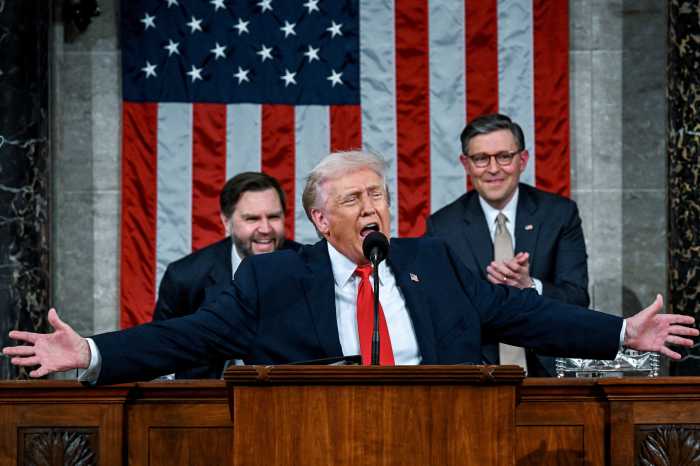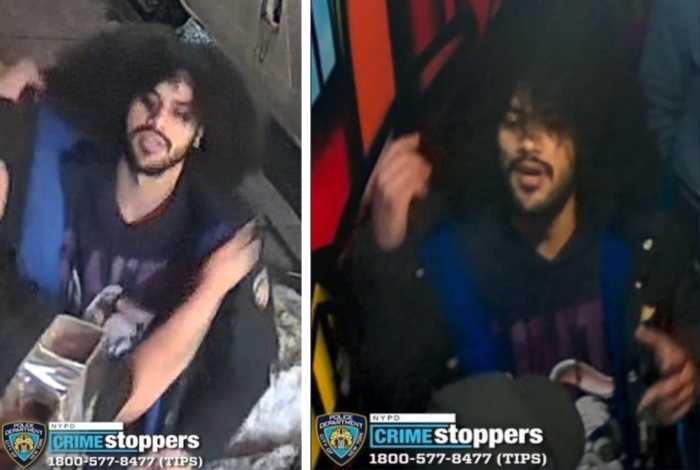U.S. Attorney backs down following swift, strong community opposition
Following a community outcry, the federal prosecutor in Manhattan will not distribute posters that feature the pictures and names of convicted crystal dealers, their prison sentences, and text asking “Was it worth it?”
The posters were meant to “stem the growth of crystal meth distribution in New York City, by increasing the awareness among users and distributors of the criminal penalties associated with dealing the drug,” according to an October 28 press statement from David N. Kelley, the U.S. attorney for the Southern District of New York.
The posters, which used the pictures and names of five dealers, were to be displayed “in areas where the individuals did their drug dealing, including the Chelsea neighborhood where many of the drug deals took place,” according to the statement.
News of the posters, which was first reported by the Associated Press on October 28, prompted immediate opposition from community groups, defense attorneys and activists who saw them as little more than an attack on gay men.
“We don’t see them as predators,” said Dan Carlson, a co-founder of HIV Forum, a group that has produced a series of town meetings on gay men, HIV and crystal. “Most of them had an addiction and they were supporting their addiction by selling.”
Carlson’s comments came at a November 5 press conference held on the steps of City Hall following an hour-long meeting with senior staff in the U.S. attorney’s office.
Joining Carlson in that meeting were Alfredo Monferre, a community activist, Peter Staley, a member of the Crystal Meth Working Group, Ana Oliveira, executive director of the Gay Men’s Health Crisis (GMHC), and Jay Laudato, executive director of the Callen-Lorde Community Health Center.
The U.S. attorney’s office announced it would not use the posters after that meeting.
“The U.S. Attorney’s staff met with members of the community on Friday to discuss the crystal meth poster campaign,” a November 8 press statement said. “The staff listened to the concerns raised in the meeting, and the office is continuing to consult with the [Drug Enforcement Administration], the community groups and others regarding the most effective content for the poster campaign. The posters will not be released pending further consideration of the matter.”
The posters prompted several concerns. One was that the men in the posters were being humiliated and activists questioned whether that would have any effect on current users and dealers.
“People were just furious,” Staley said. “They looked like wanted posters of gay men.”
A second concern is that GMHC, the working group and Callen-Lorde are all running anti-crystal campaigns of their own. Parts of the gay community have criticized the community group posters for creating a backlash against gay men. The U.S. attorney’s posters were seen as harming those other anti-crystal campaigns.
“A very small segment believes that we will create a backlash,” Staley said at the November 5 press conference. “These ads are their best evidence to date that the backlash exists.”
The activists, however, did not fault the motivation of the U.S. attorney’s office which has used similar posters in other campaigns.
“They told us at the beginning of the meeting that they had run similar ads in other communities and received a positive response,” Carlson said.
City Councilwoman Margarita Lopez, a lesbian who represents parts of lower Manhattan, did not attend the meeting, but spoke at the press conference.
“Every single time we hear about the state government or the federal government responding to this problem they are criminalizing it,” she said. “Not a penny, not a penny on treatment. When is it that the federal government and the state government are going to understand?”
To date, Lopez has won roughly $700,000 from the city for meth prevention and treatment efforts. Following the press conference, she said that next month the city will likely announce another $400,000 allocation for anti-meth campaigns.





































